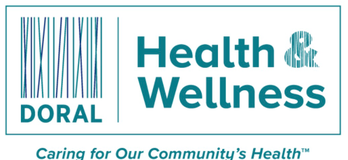Managing PCOS (Polycystic Ovary Syndrome)

PCOS or Polycystic Ovary Syndrome is a hormonal condition common among women of reproductive age. Women with PCOS produce higher than normal amounts of male hormones. This hormonal imbalance causes infrequent or prolonged menstrual periods that make the woman harder to get pregnant. This condition can also cause excess hair growth, acne, and infertility.
Having PCOS means that your ovaries are creating excess male hormones, which means that you have elevated levels of hormones called androgens. When this happens, your reproductive hormones become imbalanced, causing you to have erratic menstrual cycles, missed periods, and unpredictable ovulation. When you have PCOS, you may develop small cysts on your ovaries due to a lack of ovulation. However, having PCOS doesn’t necessarily mean that you have cysts on your ovaries. Schedule an appointment with the best GYN in East New York at Doral Health and Wellness – Women’s Health Center.
Doctors don’t really know the causes of PCOS though they believe that elevated levels of male hormones are the ones that prevent the ovaries from producing eggs normally. Genes, insulin resistance, and inflammation have all been linked to excess estrogen production.
Early diagnosis and treatment may reduce the risk of long-term complications of PCOS.
SYMPTOMS
Symptoms may develop sooner or around the first menstrual period during puberty or may develop later in a woman’s life. The signs and symptoms may vary but the most common signs and symptoms you may experience can include:
- Polycystic ovaries – Your ovaries may be enlarged and contains follicles surrounding the egg
- Irregular periods – infrequent, prolonged, or absentee periods are the most common signs of PCOS. Sometimes you could also experience heavy bleeding during periods
- Elevated estrogen – your male hormones may be higher than normal. Causing you to develop physical signs such as facial hair and occasionally severe acne
- Acne – Estrogen can make the skin oilier that causes breakouts in areas like the face, chest, and back
- Weight gain – Most women with PCOS are overweight or obese and have trouble losing weight
- Abnormal hair growth – you may notice excess facial hair and unusual hair growth on the arms, chest, and abdomen.
- Darkening of the skin – you may notice patches of dark hair, especially in the folds of your neck armpits, groin, and under the breasts
- Infertility – PCOS is the most common cause of female infertility due to the frequency or lack of ovulation
- Other symptoms include skin tags, pelvic pain, and mood swings
It is also possible that you have PCOS but have no symptoms. Some women don’t even realize they have PCOS until they have trouble getting pregnant.
CAUSES
There are really no known causes of PCOS. Doctors don’t know all the reasons why most women develop PCOS. Though it could be attributed to genes. If your mother and/or sister have it, you most likely would have it too. It could also be that your body produces too much insulin which affects your ovaries and its abilities to ovulate. There are also other factors that may contribute to causing PCOS, which can include:
- Insulin resistance – increased levels of insulin can cause the ovaries to make and release androgens, or the male hormones. And increased male hormones can suppress ovulation.
- Elevated levels of male hormones – this prevents the ovaries from releasing eggs which can then cause irregular menstrual cycles
DIAGNOSIS
Your healthcare provider will typically have your blood tests checked for hormonal imbalance. They will also conduct pelvic exams as they can look for problems in the ovaries and other parts of your reproductive organ. An ultrasound could also help check for abnormal follicles in your ovaries and uterus.
TREATMENT
Your treatment will depend based on your symptoms, medical history, and other health conditions, or if you want to get pregnant. Treatments can also include medications, lifestyle changes, or both.
If you have no plans of getting pregnant yet, treatments can include:
- Hormonal birth control
- Medication to block androgens
- Insulin-sensitizing medicine
- Lifestyle changes
If you already want to get pregnant, treatment for PCOS can include:
- Medication to induce ovulation
- Surgery
- Thru IVF
PREVENTION
There really is no way to prevent PCOS, but you can take steps and action in reducing your symptoms, such as eating a healthy diet and exercising daily to manage your weight can help you avoid the effects of PCOS.
If you have the symptoms of PCOS, it is best to consult a medical provider. If you are looking for a gynecologist that you can trust, you can book your appointment at Doral Health and Wellness – Women’s Health Center, where we provide women with quality healthcare services. Our specialists aim to deliver the highest quality of healthcare. To book an appointment, you can visit us at 1797 Pitkin Avenue, Brooklyn, NY, or call us on 1-347-384–5690 or 1-347-955-3465. You can also visit our website to book an appointment online at https://doralhw.org or contact us at info@doralhw.org if you have any queries.


